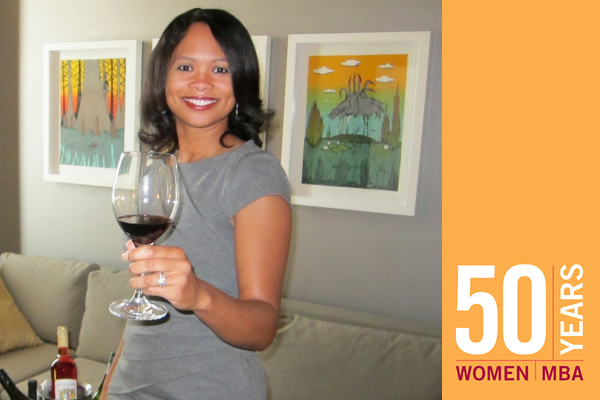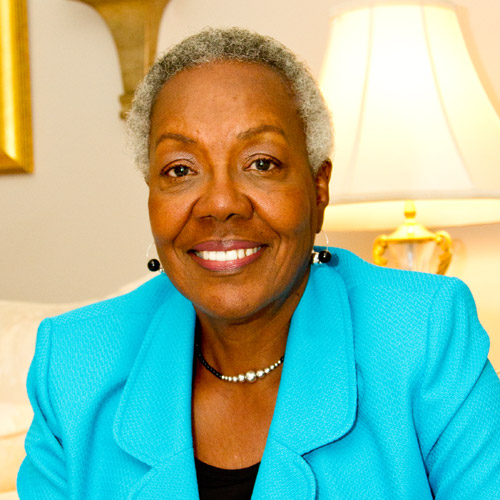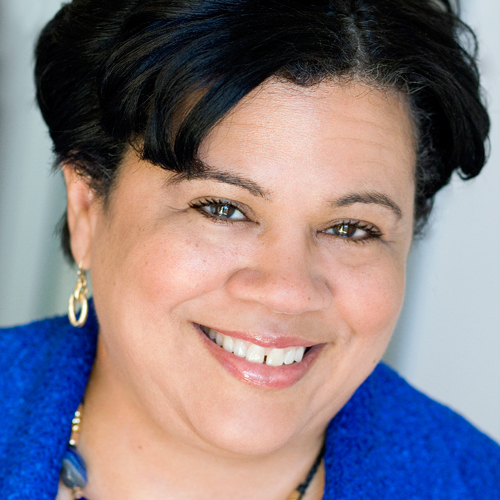
Selena Cuffe
Biography
Selena Cuffe is the co-founder and CEO of Heritage Link Brands, the largest importer of wine produced by indigenous Africans in North America. From PBS to Time, her company has been recognized for industry innovation, and the company’s South African portfolio has won accolades from the International Wine Challenge, Decanter magazine, and Wine Spectator, among others.
On a trip to South Africa in 2005, Selena Cuffe (MBA 2003) happened across an advertisement promoting the first Soweto Wine Festival. Cuffe, the director of an exchange-student nonprofit, didn't know a lot about wine. Yet the event sounded so intriguing, off she went, brushing aside warnings that it was dangerous for foreigners to enter the township. Along with good food, camaraderie, and jazz, she discovered some fabulous wines with an added, rare distinction: they were produced by black South African vintners.
Black South Africans had long been involved in viticulture and wine-making. But apartheid had prevented them from owning land or gaining access to capital. Wine had become a $3 billion export industry for South Africa, but just 2 percent of the market was held by black South Africans, who comprise 85 percent of the population.
For Cuffe, that day in Soweto was an "aha moment": She and her husband, Khary Cuffe (MBA 2007), had long wondered how they could improve the world's image of Africa. She realized that purveying to the West a prestige item—of world-class quality and created by black Africans—was an opportunity to alter some misconceptions. So the Cuffes established Heritage Link Brands and, almost before they knew it, were in the wine-distribution business.
"Founding the company wasn't about wine; it was about hoping that we could transform the way the world perceived Africa and the African diaspora, through the medium of wine," says Cuffe. "Now people could understand that luxury goods could come out of Africa."
At the wine festival, Cuffe had met Vivian Brutus Kleynhans, one of seven sisters who produced a selection of various wines, aptly named Seven Sisters, each one designed to match the style and personality of one of the sisters. A notable recent addition is the House of Mandela portfolio of wines, produced by the family of Nelson Mandela. The Mandelas and Cuffes both recognized South Africa's burgeoning fair trade wine movement, which promotes equitable trade and labor practices, community development, and environmental awareness.
"The Mandela family saw it as a way—through the medium of wine—to support a local economy and to tell the story about their values and their tradition that hopefully can be lessons for other people," says Cuffe. "So we are just stewards of telling their story. I like that we're behind the scenes."
In addition to traditional wine distribution in the United States, Cuffe made deals with several US airlines to carry Heritage Link wines. "Our first contract created 200 jobs on the ground," Cuffe says proudly. "And ours was the first South African wine to be served on American Airlines. Because of that, the South African government took notice and responded by negotiating a land purchase for the Seven Sisters, who until that point owned no vineyards and had to contract farmers and a winery to grow grapes. Now Walmart wants to put Seven Sisters in 1,500 US stores by 2014 and then expand into Canada, China, and other areas. It's been quite a ride!"
It seems all the more remarkable to Cuffe, who never thought of herself as having entrepreneurship in her blood (although her grandmother, having moved from Louisiana to California with seven children, little education, and 11 cents in her pocket, had started a fashion house creating clothing for music stars such as Ike and Tina Turner and Sonny and Cher).
"Before HBS, there was nothing in me that wanted to be an entrepreneur," Cuffe says. "But Professor Joe Lassiter showed me there was a toolkit for how to do it and that you can have greater impact through entrepreneurship. Bill Sahlman's Entrepreneurial Finance course helped me gain the self-awareness that maybe this was more of a personality fit than I thought."
Cuffe owes another debt of gratitude to the School, as she quickly points out: "I met my husband at HBS!" (Khary, a marketing director at L'Oreal, also serves as Heritage Link's CFO. The Cuffes have two sons.)
Asked where she'll be in 10 years, Cuffe replies, "I think I'll be a serial entrepreneur, with the wine business going well but maybe other businesses within that portfolio. I'm toying with a couple of things now in the health-care space. Whatever I'm involved in, it's got to be making the world a better place. I'm hard-wired that way."
—Article by Garry Emmons. First appeared in the HBS Alumni Bulletin.

